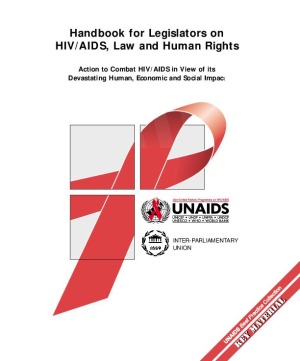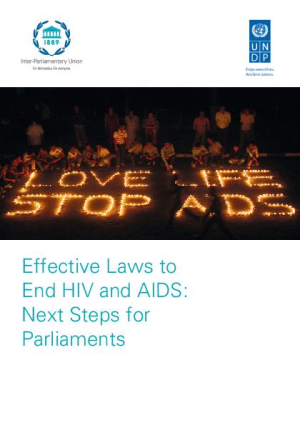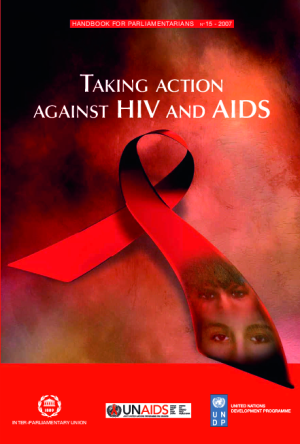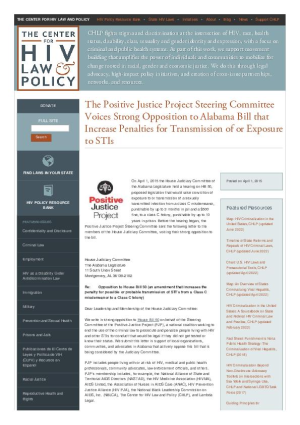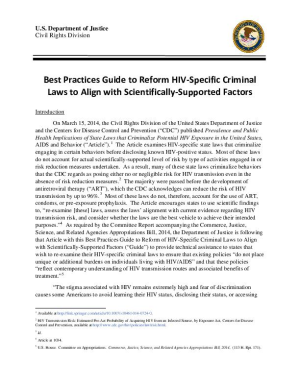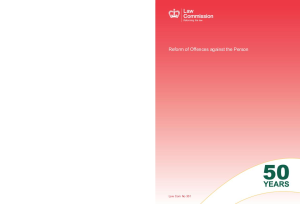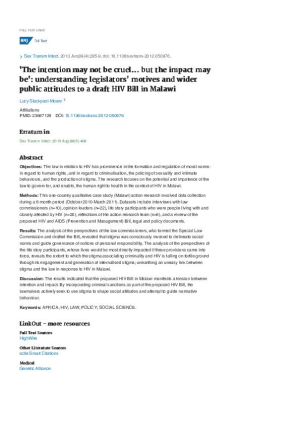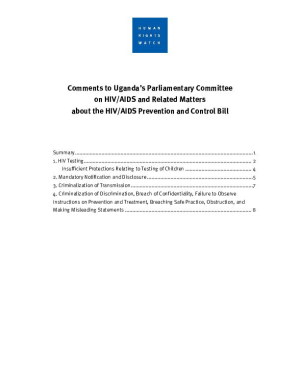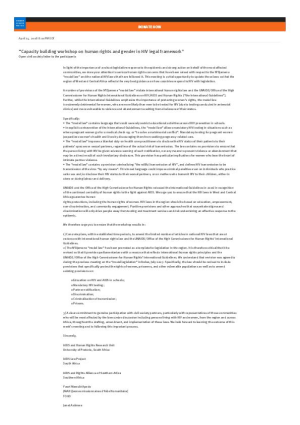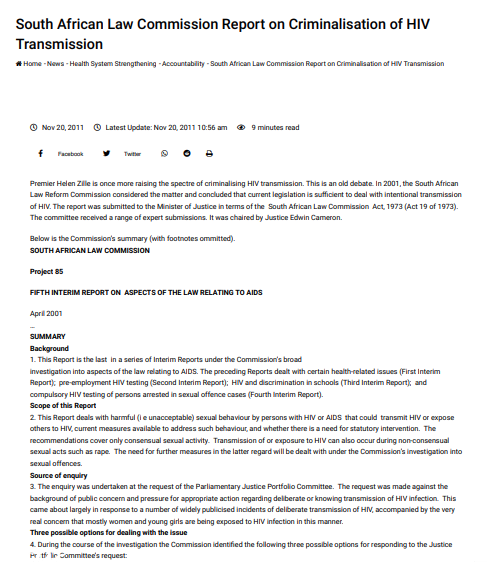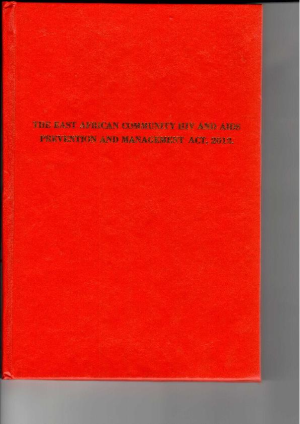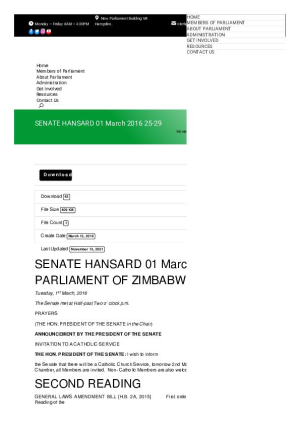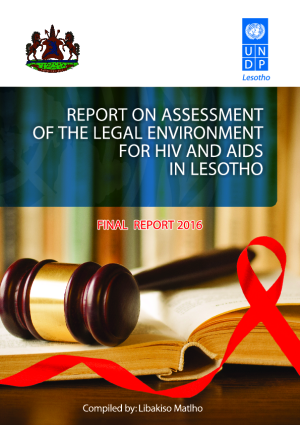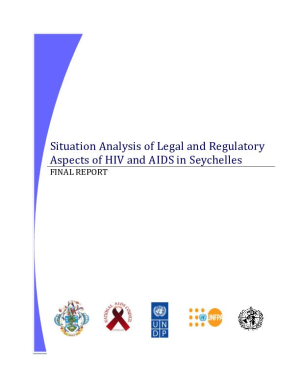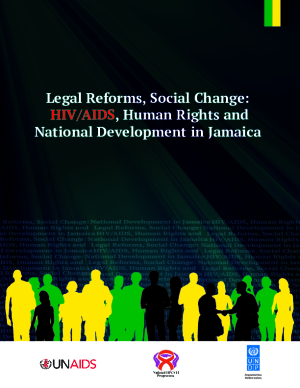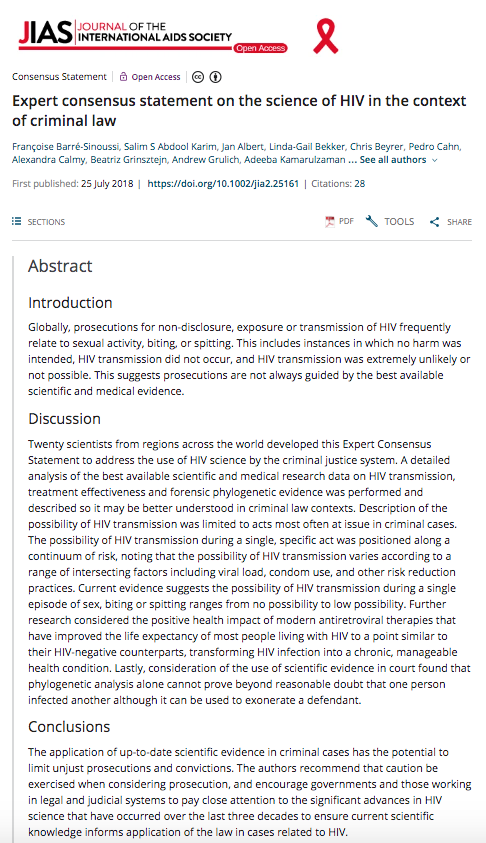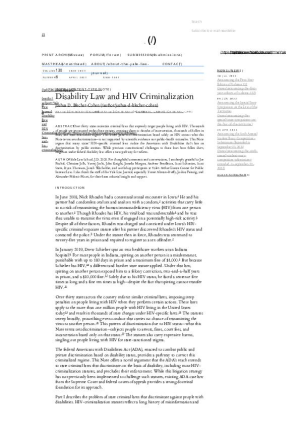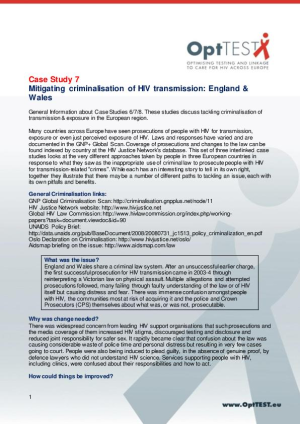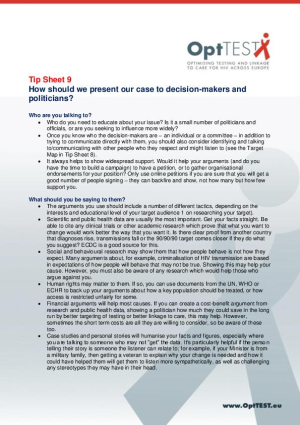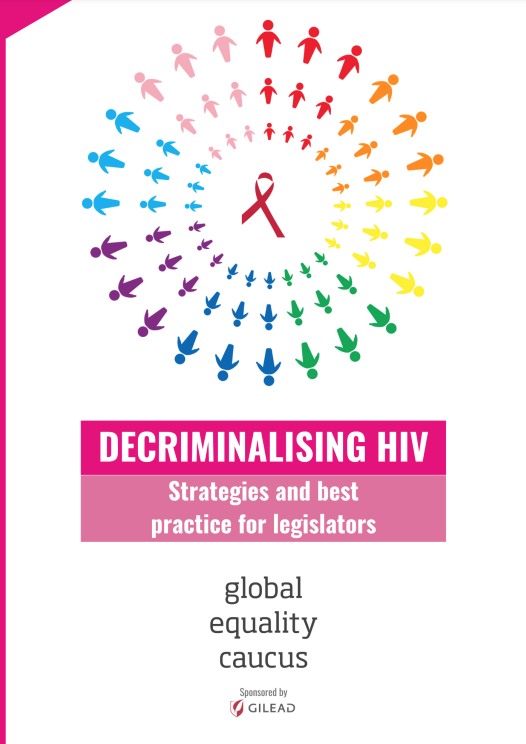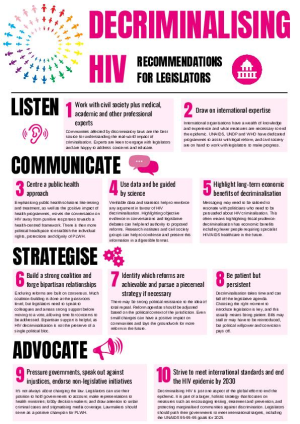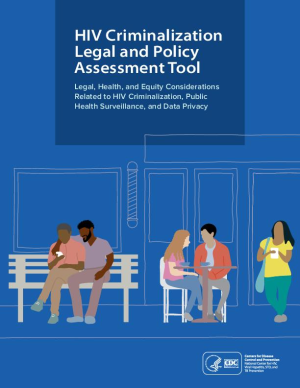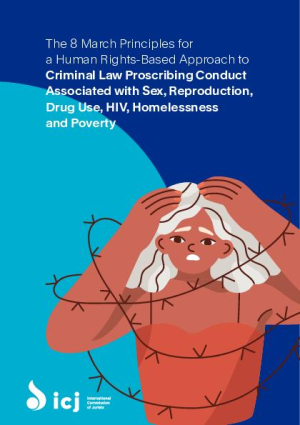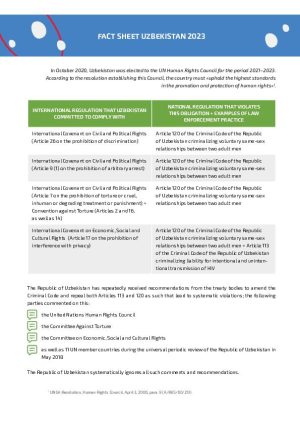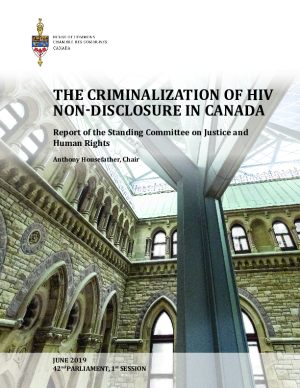Aims to assist parliamentarians and other elected officials to undertake appropriate law reform and develop effective legislation to fight against AIDS. Provides examples of best legislative and regulatory practices from around the world. (This resource contains content that is broader than HIV criminalisation.)
Initiating policy & law reform
Targeting lawmakers
Politicians are the key to law reform as they are charged with making laws. This section includes resources outlining different mechanisms to engage with politicians, arguing for appropriate legislation to support a strong HIV response.
Effective Laws to End HIV and AIDS: Next Steps for Parliaments
Informs parliamentarians about the types of laws that are helpful and unhelpful in the AIDS response. Gives examples of legislation from around the world that has been effective in limiting the spread of HIV, and draws lessons from the experiences of parliamentarians involved. (This resource contains content that is broader than HIV criminalisation.)
- Alternative links
- French / Français,
Chapter 13, A controversial issue: HIV transmission/exposure offences, Taking Action Against HIV and AIDS: A Handbook for parliamentarians
Serves as a call to action for parliamentary leadership and a reference guide for legislators and legislative staff. Contains information and guidance on issues specific to the AIDS response. (This resource contains content that is broader than HIV criminalisation.)
The Positive Justice Project Steering Committee Voices Strong Opposition to Alabama Bill that Increases Penalties for Transmission of or Exposure to STIs
Letter to Alabama legislators about proposed laws to increase punishment for people convicted of exposure to or transmission of a sexually transmissible infection.
Best Practices Guide to Reform HIV-Specific Criminal Laws to Align with Scientifically-Supported Factors
Provides technical assistance to states wanting to re-examine HIV-specific criminal laws to ensure that existing policies “do not place unique or additional burdens on individuals living with HIV/AIDS” and that policies “reflect contemporary understanding of HIV transmission routes and associated benefits of treatment.”
Reform of Offences Against the Person
Recommends replacing the outdated Offences Against the Person Act 1861 with a modified version of a 1998 draft Bill. Includes a detailed discussion of submissions by 35 concerned stakeholders (at chapter six: ‘transmission of disease’) .
‘The intention may not be cruel… but the impact may be’: understanding legislators’ motives and wider public attitudes to a draft HIV Bill in Malawi
Participatory Action Research undertaken during consideration of new HIV criminalisation laws in Malawi in 2010/11 indicated the proposed bill manifests a tension between intention and impact. By incorporating criminal sanctions as part of the proposed HIV bill, the lawmakers actively seek to use stigma to shape social attitudes and attempt to guide normative behaviour.
Comments to Uganda’s Parliamentary Committee on HIV/AIDS and Related Matters about the HIV/AIDS Prevention and Control Bill
Argues that a draft HIV bill (2009) including a provision criminalising HIV transmission, contravenes the right to equal protection and non-discrimination under Uganda's constitution and Uganda's obligations under international human rights law. Furthermore, these provisions will prove counterproductive to reducing the burden of the HIV epidemic in the country.
Open civil society letter to the participants of the “Capacity building workshop on human rights and gender in HIV legal frameworks”
Raises serious human rights concerns about the N’Djamena “model law” and the national HIV laws that have followed it. Urges development of guidance on how countries should use legislation to respond to HIV.
South African Law Commission Report on Criminalisation of HIV Transmission
Presents findings from an enquiry undertaken at the request of the Parliamentary Justice Portfolio Committee following public pressure for ‘appropriate action’ regarding deliberate or knowing transmission of HIV infection. The report concludes that statutory intervention (HIV specific law) is neither necessary nor desirable.
The East African Legislative Assembly passes the EAC HIV & AIDS Prevention and Management Bill
April 2012 passing of the HIV & AIDS Prevention bill by the East African Legislative Assembly (Tanzania, Kenya, Uganda, Rwanda and Burundi). The bill offers a constructive alternative to the N’Djamena Model Laws promoting HIV criminalisation. The Bill followed strong actions by civil society including numerous stakeholder meetings of civil society and politicians.
Motion on Criminalisation of HIV Transmission, Exposure and Non-Disclosure in SADC Member States
Motion 7.3 - Expresses concern that HIV-specific laws harm prevention efforts and care and infringe on human rights. Reaffirms States human rights obligations and calls on SADC Member States to rescind punitive HIV laws.
Assessment of Legal, Regulatory & Policy Environment for HIV and AIDS in Malawi
Designed to help governments and civil society review laws and policies based on human rights, and increase capacity to achieve enabling legal environments. Includes recommendations on criminalisation at pages 120-122.
Report on assessment of the legal environment for HIV and AIDS in Lesotho
Designed to help governments and civil society review laws and policies based on human rights, and increase capacity to achieve enabling legal environments. Includes recommendations on criminalisation at p.38.
Situation Analysis of Legal and Regulatory Aspects of HIV and AIDS in Seychelles
Designed to help governments and civil society review laws and policies based on human rights, and increase capacity to achieve enabling legal environments. Includes recommendations on criminalisation at p.88.
Legal Reforms, Social Change: HIV/AIDS, Human Rights and National Development in Jamaica
Designed to help governments and civil society review laws and policies based on human rights, and increase capacity to achieve enabling legal environments. Includes recommendations on criminalisation at p.73.
Expert consensus statement on the science of HIV in the context of criminal law
Twenty scientists from regions across the world developed this Expert Consensus Statement to address the use of HIV science by the criminal justice system. Description of the possibility of HIV transmission was limited to acts most often at issue in criminal cases. The authors recommend that caution be exercised when considering prosecution, and encourage governments and those working in legal and judicial systems to pay close attention to the significant advances in HIV science that have occurred over the last three decades to ensure current scientific knowledge informs application of the law in cases related to HIV.
- Alternative links
- Czech: Expertní prohlášení k vědeckým poznatkům o HIV v kontextu trestního práva , French: Déclaration de consensus d'experts sur la connaissance scientifique relative au VIH dans le contexte du droit pénal, German: Expertenkonsens zur HIV-Wissenschaft im Kontext des Strafrechts, Mandarin: 專家共識聲明:刑法脈絡下的愛滋相關科學, Russian: Заявление об экспертном консенсусе в отношении научных данных о ВИЧ- инфекции в контексте уголовного права , Spanish: Declaración de Consenso de expertos sobre la ciencia relativa al VIH en el contexto del derecho penal
Disability Law and HIV Criminalization
Over thirty states maintain criminal laws that expressly target people living with HIV. Thousands of people are prosecuted under these statutes, exposing them to decades of incarceration, thousands of dollars in fines, and state-sanctioned stigma. This broad pattern of discrimination based solely on HIV status is not supported by scientific evidence nor public-health rationales. This Note argues that many states’ HIV-specific criminal laws violate the Americans with Disabilities Act’s ban on discrimination by public entities.
Mitigating criminalisation of HIV transmission: England & Wales
Many countries across Europe have seen prosecutions of people with HIV for transmission, exposure or even just perceived exposure of HIV. Laws and responses have varied. This case study looks at approaches taken by people in England & Wales in response to what they saw as the inappropriate use of criminal law to prosecute people with HIV for transmission-related “crimes”.
OptTEST Tip sheet 9 – How should we present our case to decision-makers and politicians?
Explores how to educate decision-makers and politicians, best ways to communicate, how to frame the arguments etc.
OptTEST Tip sheet 11 – Key Questions: Questions you should ask yourself (and be able to answer) before you ask to meet with a Government Minister
Document exploring how to prepare meeting with government officials.
OptTEST Tip sheet 12 – What can we do when politicians ignore the evidence?
Examples of strategies to resist or challenge poor decision making.
Decriminalising HIV: Strategies and best practice for legislators
This report from the Global Equality Caucus collates expert insight and best practice examples on HIV criminal law reform. In a series of case studies from around the world, where some of the Global Equality Caucus’s members have led reform efforts, the report identifies several key lessons, takeaways and overarching themes for legislators to consider.
Decriminalising HIV – Recommendations for Legislators
Based on the research, studies and consultations that informed the report Decriminalising HIV: Strategies and best practice for legislators, The Global Equalities Caucus has identified several common themes across different regions and contexts and proposes 10 recommendations for legislators working to decriminalise HIV.
HIV Criminalization Legal and Policy Assessment Tool
This HIV Criminalization Legal and Policy tool was developed to assist states’ decision makers in assessing their HIV criminalization laws alignment with current scientific and medical evidence, and their intersection with HIV data privacy laws.
The tool enables an objective assessment of a jurisdiction’s laws, regulations, and executive orders that control HIV surveillance and prevention. The tool can also help identify opportunities to strengthen legal and policy protections for people with HIV — protections that are also likely to benefit public health more broadly—by aligning them with evidence-based best practices.
8 March Principles for a Human Rights-Based Approach to Criminal Law Proscribing Conduct Associated with Sex, Reproduction, Drug Use, HIV, Homelessness and Poverty
The Principles, published by the International Commission of Jurists are based on general principles of criminal law and international human rights law and standards. They seek to offer a clear, accessible and workable legal framework – as well as practical legal guidance – on applying the criminal law to conduct associated with: sexual and reproductive health and rights, consensual sexual activities, gender identity and expression, HIV non-disclosure, exposure or transmission, drug use and homelessness and poverty. The principles are additionally intended to address the detrimental impact of the criminalization of this conduct on health, equality and other human rights.
Challenging HIV Criminalisation in the East African Community: A brief for parliamentarians
This brief aims to be an accessible tool for parliamentarians in the East African Community (“EAC”) to understand HIV criminalisation. It aims to equip them with the tools to address misinformation and stigma about HIV with facts, science and human rights, and to develop strategies to rationalise, modernise and improve communities’ legal responses to HIV.
Factsheet Uzbekistan 2022
The Republic of Uzbekistan has repeatedly received recommendations from the treaty bodies to amend the Criminal Code and repeal both Articles 113 and 120 as such that lead to systematic violations. The Republic of Uzbekistan systematically ignores all such comments and recommendations, despite having committed to comply with international regulations.
This factsheet summarises violations from international regulations and recommendations from the treaty bodies.
The Criminalization of HIV Non-Disclosure in Canada – Report of the Standing Committee on Justice and Human Rights
Ground-breaking report recommending that the Government of Canada works with each of the Canadian provinces and territories to end the use of sexual assault law to prosecute allegations of HIV non-disclosure.

